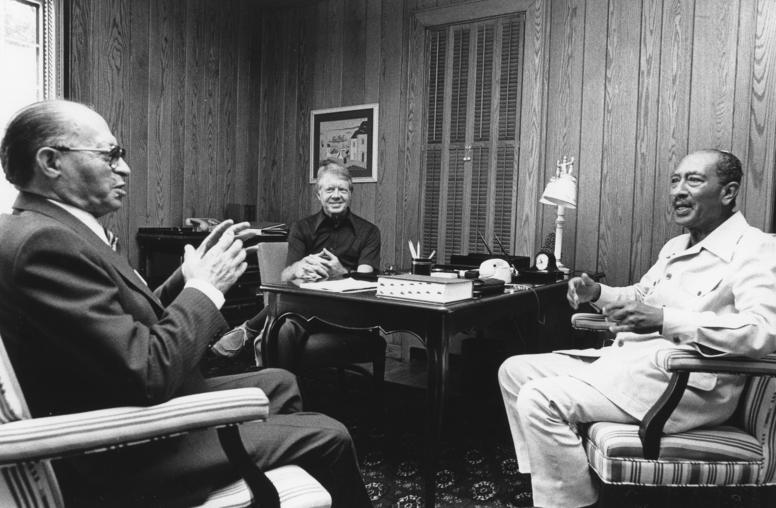Egypt’s Protests Underscore Importance of Early Warning
The crisis in Egypt sparked debates about whether the U.S. government failed to anticipate the events. USIP’s Lawrence Woocher comments on these debates and the role of early warning in preventing conflict and instability.
February 11, 2011
The crisis in Egypt sparked debates about whether the U.S. government failed to anticipate the events or if policymakers were warned but failed to respond adequately. USIP’s Lawrence Woocher comments on these debates and the role of early warning in preventing conflict and instability.
- What should we make of the differing reports about whether there was good warning about the recent events in Egypt?
- What can be done to improve early warning in the future?
What should we make of the differing reports about whether there was good warning about the recent events in Egypt?
These kinds of debates take place after virtually every major world event that appears to catch policymakers flat-footed. To be sure, political incentives are part of the explanation. But in most cases—and I suspect in the case of Egypt’s political instability—there is some truth on both sides of the debate. Analysts can legitimately point to briefings given and warnings issued before the crisis. At the same time, policymakers can legitimately report feeling that they were taken by surprise and that warnings were too general or didn’t stand out among the dozens of reports crossing their desks each day. This state of affairs points to shortcomings in the system of analysis and decision-making as much as to mistakes by any particular governmental agency or official. It also underscores the importance of the early warning function--the collection, analysis and communication of information about signs of potential crisis or conflict—in supporting preventive or preparatory action.
What can be done to improve early warning in the future?
I would highlight two major challenges to improving early warning: (1) anticipating triggers that will tip vulnerable countries into crisis; and, (2) linking forecasting and long-range analysis to current policymaking.
Regarding triggers, there is a limit on what we can possibly know in advance of violent conflicts and acute political crises given the complex nature of these phenomena. Seemingly small events can have outsized effects. Nevertheless, we should be able to learn more from experience, so USIP is supporting new research on triggers.
Linking future-oriented analysis with current policymaking requires shifts in both mindset and government process. Senior decision-makers should think in terms of managing risks of conflict and instability over time, not just responding to immediate events, and they should demand analysis to support this approach. (If, as reported, President Barack Obama requested more long-term analysis, it would be noteworthy since it is more typical for senior decision-makers to dismiss the value of long-term analysis altogether.) Establishing regular decision points about U.S. engagement in fragile but pre-crisis situations can help discipline a preventive orientation and avoid “lock in” to established policies as local conditions change.
Additional Perspectives
- Former U.S. Ambassador on Initial Days of Protest
By Daniel C. Kurtzer, former U.S. ambassador to Egypt - Shibley Telhami on Egypt
By Shibley Telhami, former USIP Board Member (2000-2002) - Egypt Today: Historical Context of the Protests
By Qamar-ul Huda, senior program officer, Religion and Peacemaking Center of Innovation - Read more: USIP Tracks the Unfolding Situation in Egypt




